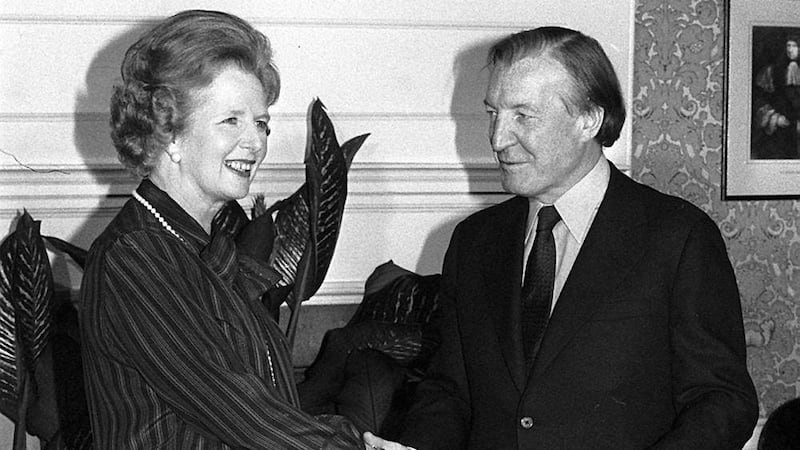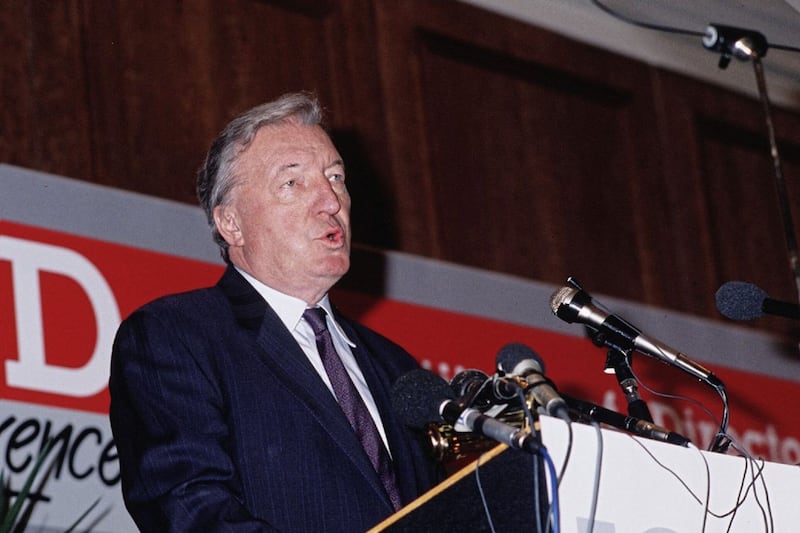Charles J Haughey was "a highly pragmatic and astute politician" who had laid the groundwork of the Anglo-Irish Agreement of 1985 during his first administration in the early 1980s.
This assessment of the controversial Fianna Fail leader and Taoiseach between 1987 and 1992 is revealed in previously confidential files released by the Public Record Office under the new `20-Year Rule'.
In an assessment of Mr Haughey's record for the British Secretary of State, Tom King, dated December 12, 1986, P N Bell, a senior NIO official, noted: "The present Anglo-Irish Agreement stems from initiatives taken on the Irish side by a Fianna Fail administration, led by Mr Haughey.
"At his summit meeting with Mrs Thatcher in December 1980, a series of Joint Studies were commenced."
The most important conclusion of these was that "formal institutional structures should be created between the heads of government, ministers and officials".
According to the official, this body still existed as the formal framework for summit meetings between the two countries and for the new Anglo-Irish Intergovernmental Conference.
Bell added that in the period 1980-82 Haughey had attached considerable importance to the institutional changes and on the UK commitment "to study the totality of relationships in these islands".
Also, his successor as Taoiseach, Dr Garret FitzGerald had "often observed [that] the AIA was the result of initiatives begun by his predecessor".
The memo noted that "the relatively warm relations with Mr Haughey" had deteriorated since 1982 due to his position during the Falklands conflict and his attitude to the Northern Ireland Assembly established by Jim Prior.
Indeed, Bell noted, the Fianna Fail leader had been "instrumental in persuading the SDLP not to participate in the Assembly" (closed by the British government in 1986).
In an accompanying paper entitled, `Doing Business with Mr Haughey', Bell anticipated an Irish general election in 1987.
In the case of a Haughey administration the existence of the Agreement might serve to discourage him "from taking extreme positions either domestically or internationally about Northern Ireland".
"For example, it would be harder for a Fianna Fail government to try and use the powerful Irish-American lobby to our disadvantage. It might also help restrain his tendency to sudden or irrational impulses of hatred towards British governments, as shown, for instance, during the Falklands conflict. It might also make him harder to turn a deaf ear to our requests for extradition ..."
In the official’s view: "Mr Haughey’s record reveals him a highly pragmatic and astute politician with few scruples and a keen eye for the main chance. It also displays him as the Irish statesman who did most to promote the Anglo-Irish dialogue which culminated in the present Agreement."








